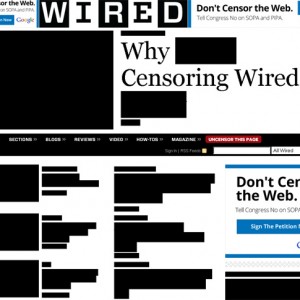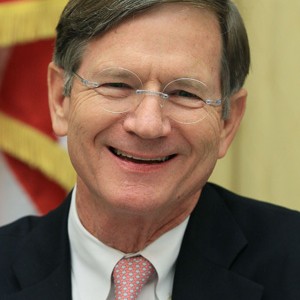
The Stop Online Piracy Act (SOPA) and Protect IP [intellectual property] Act (PIPA) are anti-piracy bills which, if passed, would expand the ability of US law enforcement and copyright holders to fight the piracy of intellectual property and counterfeit goods by seeking court orders against websites accused of enabling or facilitating copyright infringement. Its main targets would be “rogue” overseas sites like the Pirate Bay, a website based in Sweden, which hosts magnet links and torrent files that allow users to download digital media and software illegally. While the 1998 Digital Millennium Copyright Act (DMCA) lays out enforcement measures, it’s not enforceable against sites based in other countries. SOPA goes further by stopping companies based within the US from providing funding, advertising, links or other assistance to sites that facilitate copyright infringement. The legislation would also require search engines to remove websites from search queries altogether which opponents of the legislation liken to methods employed by regimes that suppress political dissent. Additionally, SOPA includes an “anti-circumvention” clause, which makes providing instruction on how to sidestep SOPA nearly as bad as violating its main provisions. Ultimately, this clause may be extended to cover tools like VPNs and Tor that are used by human rights groups, government officials and businesses to protect their communications and evade online spying and filtering.
Opponents of the legislation worry that the bill is so broad that it would allow content owners to target US websites that unknowingly host pirated content. This has been a particular concern for Facebook, Wikipedia and YouTube, all of which depend heavily on content uploaded by users. In the case of WikiLeaks, a site thats posts the internal communications of governments and private corporations alike, it’s hard to imagine how it wouldn’t qualify for blacklisting. Laurence Tribe, a Harvard law professor and author of a treatise titled “American Constitutional Law,” argues that SOPA is unconstitutional because, if passed, “an entire website containing tens of thousands of pages could be targeted if only a single page were accused of infringement.” For SOPA opponents, one of the most alarming qualities, in its original form, is that it lets intellectual property owners take action without a single court appearance or judicial sign-off. All it requires is a single letter claiming a “good faith belief” that the target site has infringed on a copyright. While filing false allegations is a crime, the process would put the burden of proof and cost of arbitration on the accused. Once a search engine or payment processor receives a quarantine notice, it would have five days to either comply or contest the claim in court. In the most recent version of the bill, the five day window has softened. Companies now need a warrant issued by a federal judge, but the potential for abuse still poses a significant threat as rights holders face little penalty for filing allegations without doing due diligence or considering fair use. Opponents of SOPA and PIPA believe that neither does enough to protect against false accusations. While provisions in the bills remove liability from payment processors and ad networks that cut off sites in the event a claims turn out to be false, the brunt of the blow is taken on by the site itself. Red Hat, a company that creates open source software, writes, “In a single generation, the Internet has transformed our world to such an extent that it is easy to forget its miraculous properties and take it for granted. It’s worth reminding ourselves, though, that our future economic growth depends on our ability to use the Internet to share new ideas and technology. Measures that block the freedom and openness of the Internet also hinder innovation. That poses a threat to the future success of Red Hat and other innovative companies. The sponsors of SOPA and PIPA claim that the bills are intended to thwart web piracy. Yet, the bills overreach, and could put a website out of business after a single complaint. Web sites would vanish, and have little recourse, if they were suspected of infringing copyrights or trademarks.”

For the moment, SOPA has been tabled. It’s unlikely to recover in its present form. The most controversial portions have been excised, and may altogether be dead, but the battle still wages on. Lamar Smith, the Texas representative who first introduced SOPA, derided Wednesday’s blackout and has gone on to say, “It is ironic that a website [Wikipedia] dedicated to providing information is spreading misinformation about the Stop Online Piracy Act. The bill will not harm Wikipedia, domestic blogs or social networking sites. This publicity stunt does a disservice to its users by promoting fear instead of facts. Perhaps during the blackout, Internet users can look elsewhere for an accurate definition of online piracy. It’s disappointing that some SOPA critics appear not to have read the bill. The Stop Online Piracy Act only targets foreign websites that are primarily dedicated to illegal activity. It does not grant the Justice Department the authority to seek a court order to shut down any website operated in the US. This bill will not censor the Internet. [sic] But it will protect American workers, inventors and job creators from foreign thieves who steal our products, technology and intellectual property.” Smith has since promised to reintroduce the bill for discussion in February. He and the bills’ supporters dismiss accusations of censorship as the freedom of speech doesn’t include and/or protect criminal behavior. While SOPA’s critics accuse the bills’ backers of failing to understand the unintended implications and collateral damage which may result from the legislation being considered, both sides will have to come together in finding a resolution that protects copyright holders and innovation here and abroad.
To see SOPA in its entirety, click here. To read more about PIPA, click here.
Photo credit: Stan Honda/AFP/Getty Images
Update – 01/20/12 @ 11:20am : SOPA is dead.